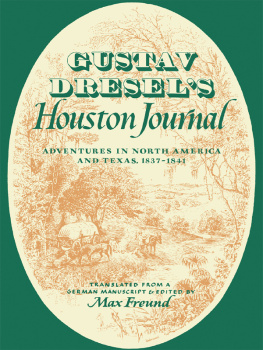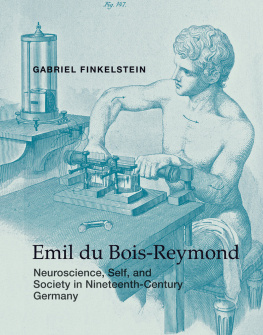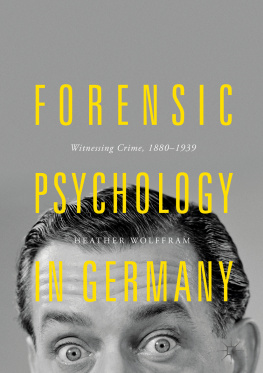Barnet P. Hartston - The trial of Gustav Graef art, sex, and scandal in late nineteenth-century Germany
Here you can read online Barnet P. Hartston - The trial of Gustav Graef art, sex, and scandal in late nineteenth-century Germany full text of the book (entire story) in english for free. Download pdf and epub, get meaning, cover and reviews about this ebook. year: 2017, publisher: Cornell University Press, genre: Non-fiction. Description of the work, (preface) as well as reviews are available. Best literature library LitArk.com created for fans of good reading and offers a wide selection of genres:
Romance novel
Science fiction
Adventure
Detective
Science
History
Home and family
Prose
Art
Politics
Computer
Non-fiction
Religion
Business
Children
Humor
Choose a favorite category and find really read worthwhile books. Enjoy immersion in the world of imagination, feel the emotions of the characters or learn something new for yourself, make an fascinating discovery.

- Book:The trial of Gustav Graef art, sex, and scandal in late nineteenth-century Germany
- Author:
- Publisher:Cornell University Press
- Genre:
- Year:2017
- Rating:4 / 5
- Favourites:Add to favourites
- Your mark:
- 80
- 1
- 2
- 3
- 4
- 5
The trial of Gustav Graef art, sex, and scandal in late nineteenth-century Germany: summary, description and annotation
We offer to read an annotation, description, summary or preface (depends on what the author of the book "The trial of Gustav Graef art, sex, and scandal in late nineteenth-century Germany" wrote himself). If you haven't found the necessary information about the book — write in the comments, we will try to find it.
Barnet P. Hartston: author's other books
Who wrote The trial of Gustav Graef art, sex, and scandal in late nineteenth-century Germany? Find out the surname, the name of the author of the book and a list of all author's works by series.
The trial of Gustav Graef art, sex, and scandal in late nineteenth-century Germany — read online for free the complete book (whole text) full work
Below is the text of the book, divided by pages. System saving the place of the last page read, allows you to conveniently read the book "The trial of Gustav Graef art, sex, and scandal in late nineteenth-century Germany" online for free, without having to search again every time where you left off. Put a bookmark, and you can go to the page where you finished reading at any time.
Font size:
Interval:
Bookmark:

2017 by Northern Illinois University Press
All rights reserved
Printed in the United States of America
26 25 24 23 22 21 20 19 18 17 1 2 3 4 5
978-0-87580-767-6 (cloth)
978-1-60909-226-9 (e-book)
Book and cover design by Yuni Dorr
| AdF: | General German Womens Association (Allgemeine deutsche Frauenverein) |
| ALR: | Prussian General Code (Allgemeinen Landrecht fr die preuischen Staaten) |
| BArch: | Bundesarchiv Berlin-Lichterfelde |
| DLA Marbach: | Deutsches Literaturarchiv Marbach |
| GStA PK: | Geheimes Staatsarchiv Preuischer Kulturbesitz |
| GVG: | German Court Organization Law (Gerichtsverfassungsgesetz) |
| LAB: | Landesarchiv Berlin |
| PrAdK: | Historisches Archiv: Archiv der Preuischen Akademie der Knste |
| SAPD: | Socialist Workers Party of Germany (Sozialistische Arbeiterpartei Deutschlands) |
| StGB: | Criminal Code (Strafgesetzbuch) |
Font size:
Interval:
Bookmark:
Similar books «The trial of Gustav Graef art, sex, and scandal in late nineteenth-century Germany»
Look at similar books to The trial of Gustav Graef art, sex, and scandal in late nineteenth-century Germany. We have selected literature similar in name and meaning in the hope of providing readers with more options to find new, interesting, not yet read works.
Discussion, reviews of the book The trial of Gustav Graef art, sex, and scandal in late nineteenth-century Germany and just readers' own opinions. Leave your comments, write what you think about the work, its meaning or the main characters. Specify what exactly you liked and what you didn't like, and why you think so.










